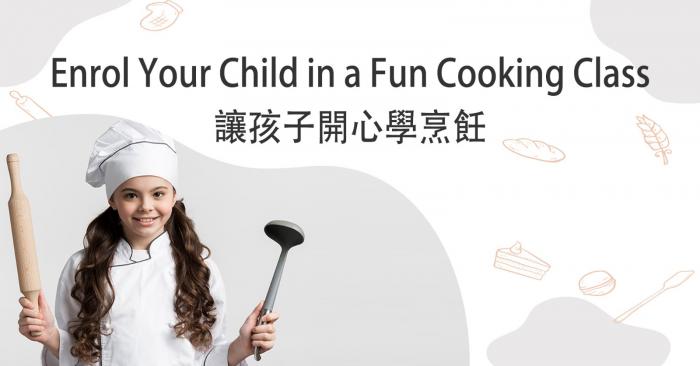
Enrol Your Child in a Fun Cooking Class
According to a study by Harvard University, children's success as they grow up is not most closely related to academic performance. Instead, those who are particularly successful do the chores when they are young. Cooking is one of the chores in the sense that it requires a lot of tedious work. On the other hand, it is also an important life skill that is vital for developing interests at an early age. Enrolling children in a fun cooking class is the easiest way to start.
Learning to cook is the perfect opportunity to equip children with the knowledge and skills to choose their food wisely according to their nutrition needs and be more aware of their diet in the future. Having the chance to see raw ingredients themselves, children will become curious about every kind of food and interested in trying each of them, such as flour, fruit, vegetables, oil, vinegar, etc. and experience the unique flavour. At the same time, they will be educated about healthy food, such as fresh fruit and vegetables with a large number of vitamins and enzymes, and unhealthy ones, such as instant noodles and overly processed food, probably containing too much oil and preservatives. These are essential nutrition knowledge to acquire to develop healthy eating habits early on.
Cooking is a great way to show students the daily life application of science. Three states of matter and chemical reactions are easily observed during the process. For example, when water is heated and boiled, it changes from one substance (liquid) to another (gas), and when it is frozen, a solid is formed. A fun way to observe chemical reactions is by baking bread with yeast and soda. When we combine yeast with warm water and add sugar, the water will react with the yeast, and the addition of sugar will cause a chemical reaction that creates carbon dioxide and leads to bubbles. This is the action that causes bread to rise. Also, when using tenderizer to soften the meat fibre and make it tender, children will learn that enzymes can break meat protein down. Undoubtedly, preparing food involves not only culinary science but also aesthetics and chemistry.
From simple pastry making to cake baking to a savoury meal, cooking is a hands-on experience requiring much tedious work. Under a teacher's guidance, children should be able to use knives and cooking utensils correctly and safely. They will beat eggs, cut things up, squeeze juice, stir the batter, knead the dough, wash veggies, etc., all of which help develop a rollup-your-sleeves attitude towards tasks. Most importantly, after matching different types and colours of ingredients to create their delicious dish or pastry, children can sit back, relax and taste their food. It gives a great sense of achievement and brings lots of fun to the little chefs.
Pick a cooking class and give your child an enjoyable and memorable experience! It may go a long way for their future life. ENROL NOW








